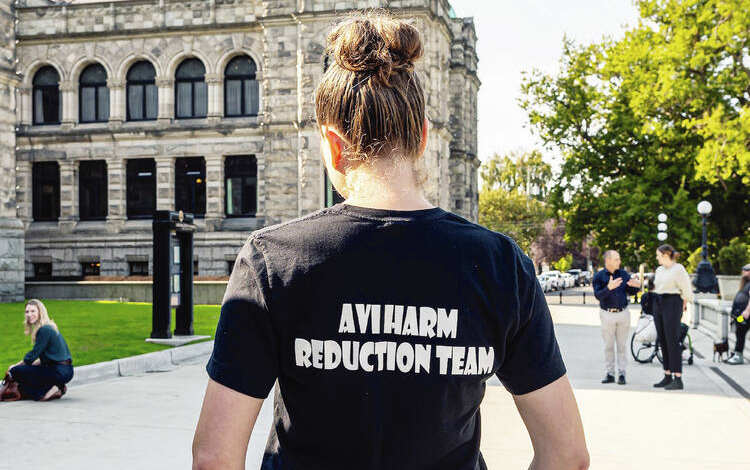A mental-health crisis team in Victoria that launched in January has fielded more than 500 calls with just a few requiring police assistance.
Funded by the province, Victoria’s peer assisted care team, which pairs a mental health professional with someone who has experienced mental health or substance-use challenges, offers an alternative to police when someone is in crisis.
There are no weapons, no uniforms and no flashing lights, said Kim Mackenzie, director of policy at the B.C. Canadian Mental Health Association. Instead, teams come in quietly in an unmarked car and street clothes, and all support provided is based on consent.
“The beauty of these teams is that there are folks on the team who understand and know what it feels like to be in a crisis. And oftentimes for people experiencing crisis, that is such an important part of being heard and understood and seen,” she said.
The calls that come in fall mostly under three categories: suicidal ideation, wellness checks, and crises related to substance use, such as substance-induced psychosis, Mackenzie said.
The Victoria team is one of three developed by the B.C. CMHA. Others are in New Westminster and on Vancouver’s North Shore.
The three teams have fielded 1,900 calls since launching, with just nine requiring a police response, Mackenzie said, and less than half of those have been in Victoria.
Police are involved only when there is an imminent risk of violence to others or to the person in question, Mackenzie said, such as someone wielding a weapon with an intent to use it.
Previously, many of those calls would likely have gone to police and have diverted resources from a busy police department that often lacks the capacity to manage complex mental health crises, she said.
In New Westminster, the number of people apprehended by police under the Mental Health Act has gone down since the PACT team launched, according to data from the police department. From January to May this year, the number of people apprehended was 99. During the same period last year, the number was 146 and in 2021 it was 192.
The PACT team doesn’t have the power to apprehend people under the Mental Health Act, which helps to foster a sense of safety in people who know they have control over the care they receive, Mackenzie said.
The Victoria team, which consists of about 20 full-time positions including managers and dispatchers, operates from 7:30 a.m. to 12:30 a.m. Monday to Friday. The province has funded the program to expand to a 24/7 model.
The number of calls to the team, known in Victoria as the Community-Led Crisis Response, has ramped up since it launched in January, from just 20 calls in its first month to 104 in September, Mackenzie said.
> See HEALTH, A2
Victoria Coun. Krista Loughton said the program helps police keep their focus on crime, rather than mental health, while supporting people in a way that is more relatable to someone in crisis.
“We’re changing the system with a response like this. That’s what this is about,” she said.
The CMHA is expanding the PACT model to create teams in the Comox Valley, Kamloops and Prince George.
Courtenay councillors Wendy Morin and Doug Hillian said they heard from downtown businesses at a forum this spring that they don’t know who to turn to for help when someone is in crisis. Business operators wondered who they should call when someone is having a mental health crisis in their store or sheltering in their doorway, Hillian said.
The two went looking for answers and discovered the PACT model. With Courtenay council and outreach agencies on board, an application was made to CMHA to bring the PACT model to the Comox Valley, which will be the first regional approach for the program when it operates in Comox, Courtenay and Cumberland.
CMHA is currently determining what service provider will operate the Comox Valley team and expects training to start early next year, Mackenzie said.
The Victoria PACT team is available at 250-818-2454 Monday to Friday from 7:30 a.m. to 12:30 a.m.



